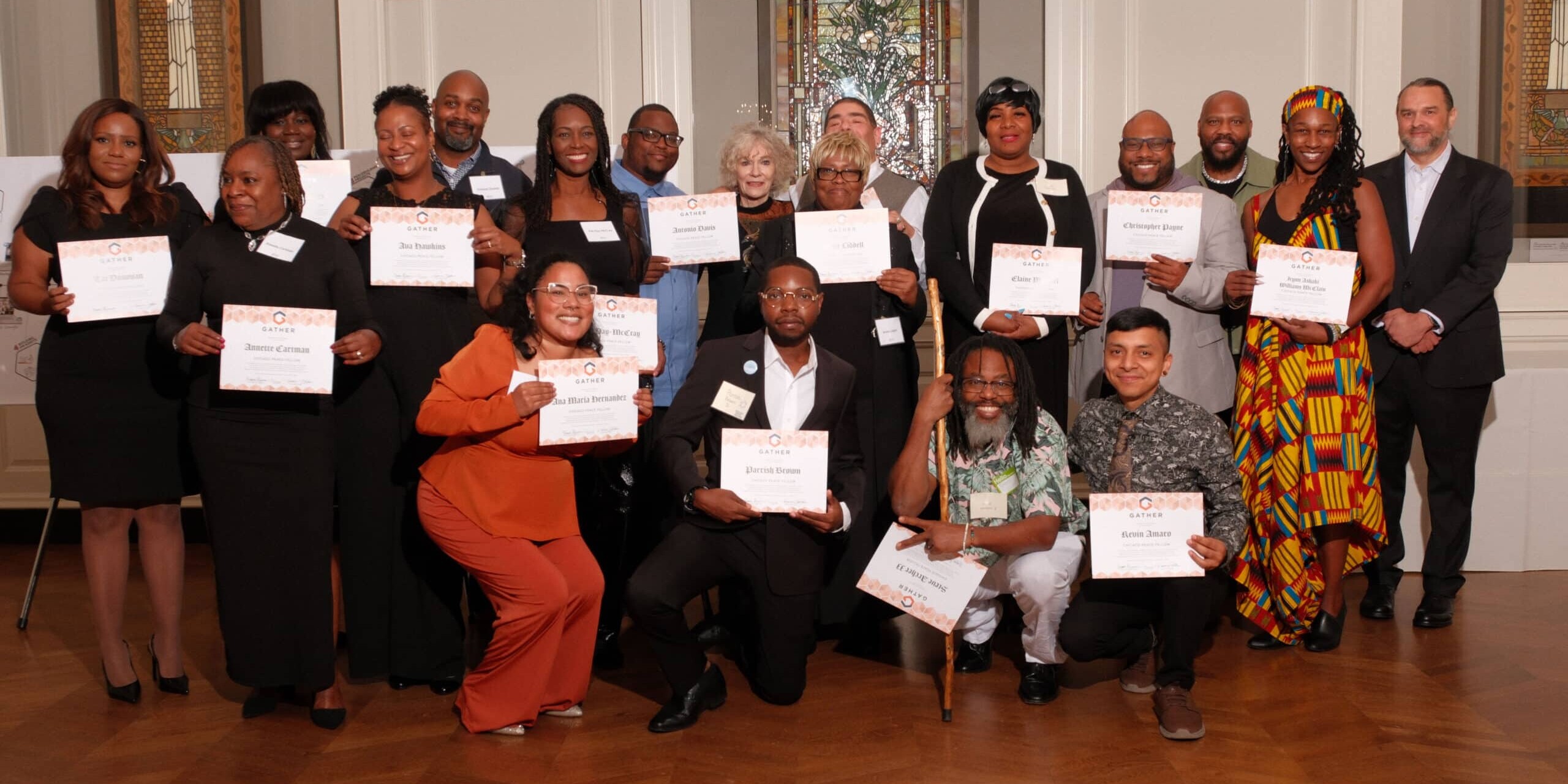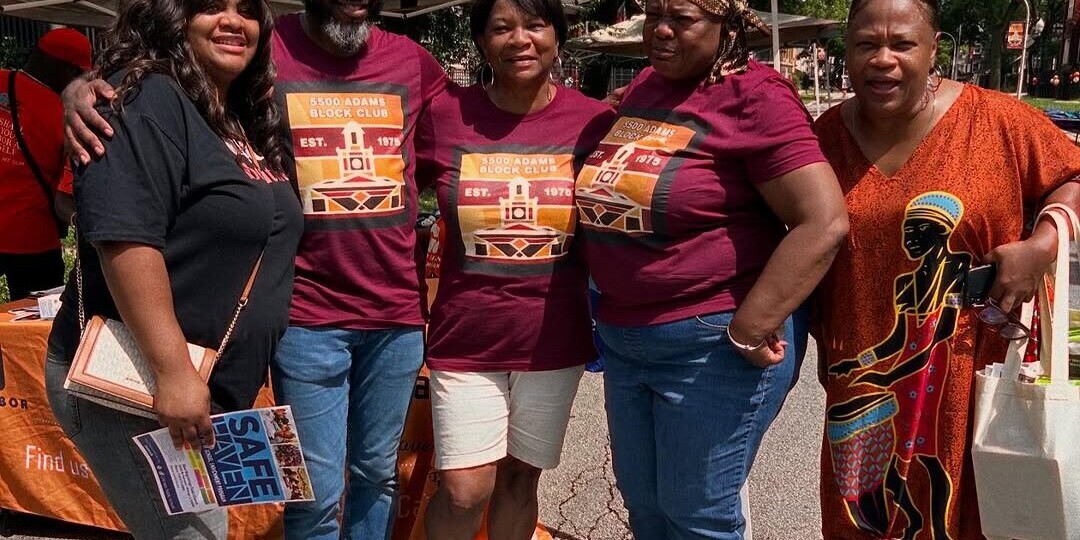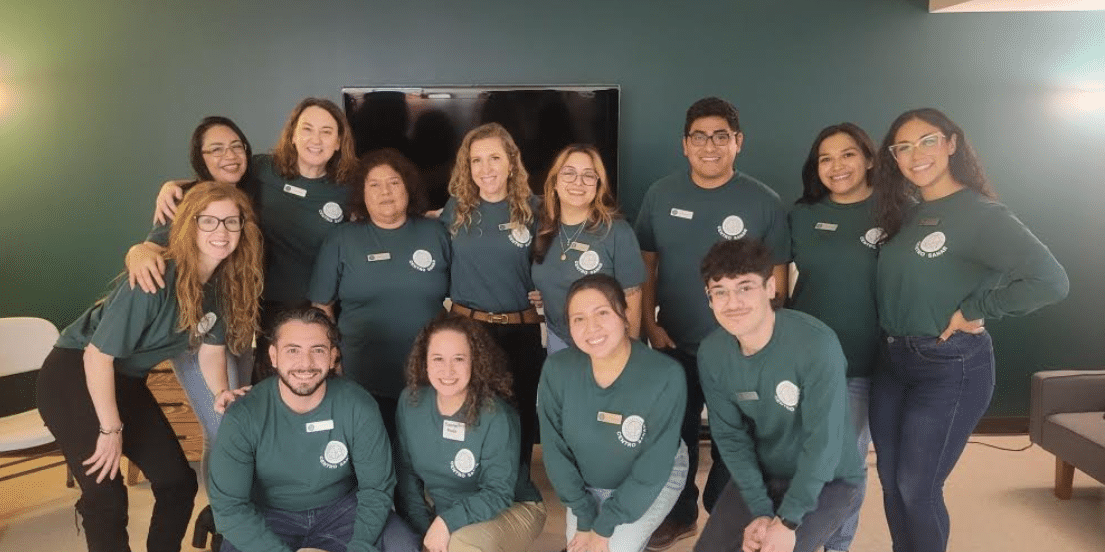On Wednesday, April 3, the Chicago Peace Fellows came together to build a list of principles and practices that will unlock shared learning and collaborationfor the group. This workshop was hosted by Peace Fellow Alex Levesque at his Automotive Mentor Group, where he trains young men and women to remodel classic cars. His program recruits youth at high risk of being involved with violence.
Alex started the workshop with a tour of the facilities and details of his program, sharing how he helps young people find purpose through their work with cars. He told us about his triumphs in helping young people find gainful employment and some of his challenges with reaching young people and the barriers they face around employment, homelessness and violence in the community and at home.
We started our conversation about the differences between best practices and best principles with Alex’s locker full of belts. He has a locker full of belts because it is a requirement that everyone has a belt on when working on the shop floor. He noted that many young people do not wear belts and that it would be a challenge to have to turn away a participant simply because they didn’t have the appropriate attire. Many of his participants come from different parts of town and have long and complex commutes. His best principle is safety first and a best practice that he developed was to have belts at the shop for anyone that needed one.
After this conversation, we moved into a workshop where we sat in different groups and discussed what our best principles can be as a group. The group reflected on the course curriculum and reviewed the dozens of comments on the theme on the discussion board.
After a process of grouping comments into themes and prioritizing values that we can share and enact, the group refined the list to the following five core principles:
- Communicate openly, inclusively, honestly and respectfully.
- Promote compassion, harmony and peace.
- Embrace mutual support and accountability.
- Adopt an intergenerational and intersectional worldview.
- Foster a growth mindset.
The group will continue to grapple with these principles but they committed to adhering to these as a group in how they engage with each other, the curriculum and the communities in which we work. Often, what is shared between practitioners are best practices but we focus on best principles because the practices should fit the context, and principles encourage others to develop practices based on what’s best for them.









